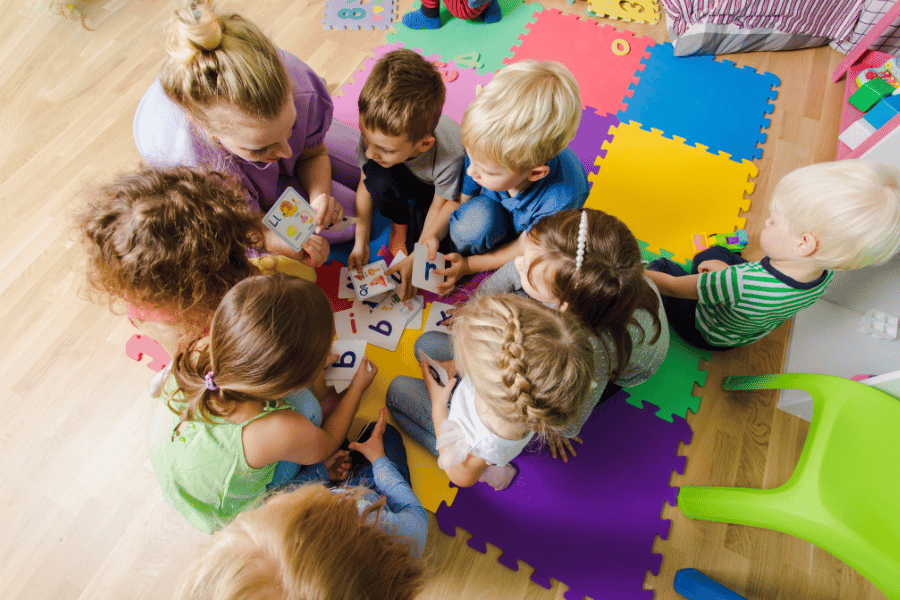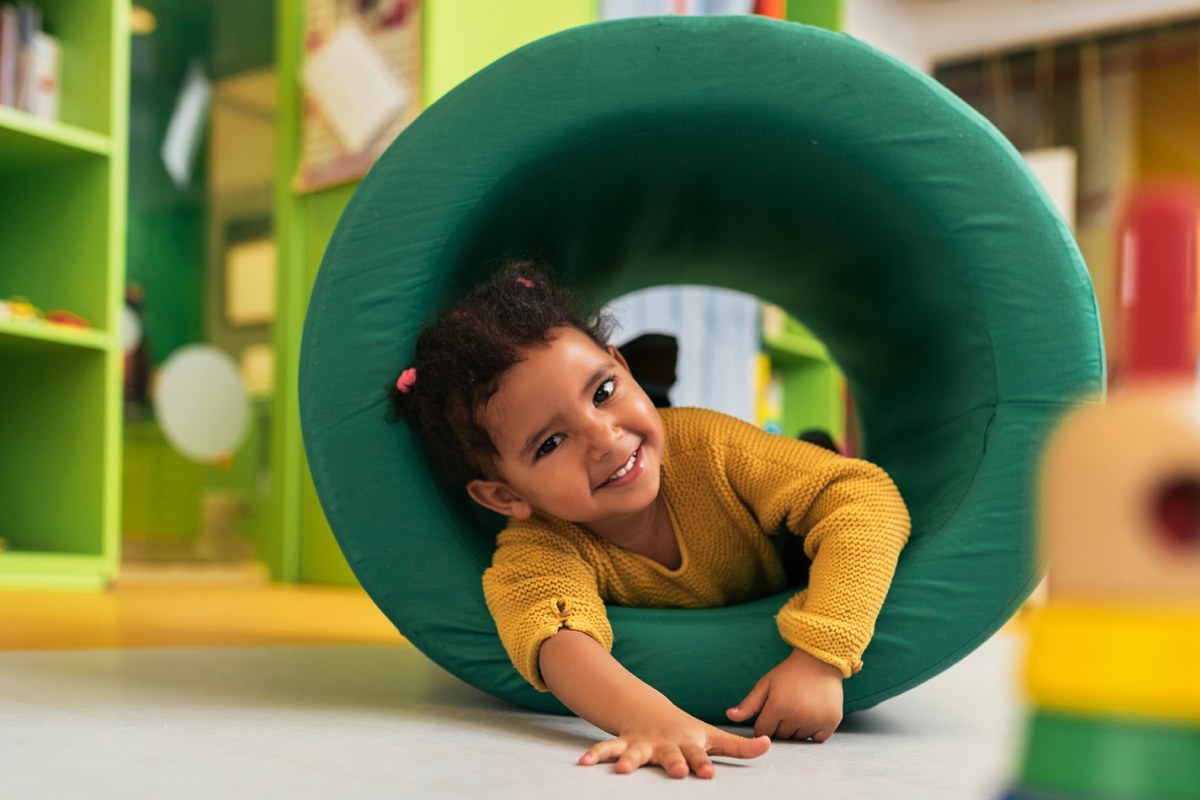Why Quality Is Key When Looking For Child Care Near Me
The Duty of Day Care in Fostering Social Abilities and Very Early Learning
Daycare functions as a considerable setting for young kids, assisting in crucial social communications that promote very early discovering. In this structured setting, kids engage with caregivers and peers, developing important communication and collaboration abilities. As they navigate play and various activities, they discover to resolve problems and build psychological knowledge. Understanding the nuances of these interactions exposes the profound influence daycare has on a child's advancement, forming their future partnerships and academic readiness. What particular skills do youngsters obtain in this setup?
The Value of Social Communication in Childcare
While many moms and dads acknowledge the value of early childhood years education, the role of social communication in day care is typically ignored. Daycare settings supply youngsters with vital opportunities to involve with peers, cultivating vital social abilities. Throughout these formative years, kids find out to browse various social dynamics, such as sharing, cooperation, and dispute resolution. Interacting with diverse age teams and characters improves their ability to adapt to various atmospheres and create compassion in the direction of others.

Structure Interaction Abilities Through Play
Play offers as an effective tool for youngsters to construct essential communication abilities in day care settings. Via various play tasks, kids talk, express their thoughts, and discover to pay attention to others. Parlor games, for instance, encourage them to use language in various contexts, promoting vocabulary expansion and understanding of social signs.

Furthermore, narration throughout playtime allows children to communicate emotions and concepts, helping them establish narrative skills and self-confidence in their verbal expressions. On the whole, play not just functions as an enjoyable leisure activity but likewise as a crucial system for establishing the communication abilities essential for effective social interactions in later life.
Motivating Teamwork and Teamwork
Cooperation and team effort are necessary abilities that children can cultivate in daycare environments. Via different team tasks, such as constructing tasks or collective video games, youngsters find out to share obligations and pursue common goals. These interactions cultivate an understanding of the value of paying attention to others, negotiating roles, and endangering when essential.
In daycare setups, caregivers often develop opportunities for youngsters to participate in team effort by motivating them to take part in team tasks. This not only assists children create social bonds however likewise grows a feeling of belonging and neighborhood.
As they navigate these participating experiences, children obtain useful understandings right into the dynamics of functioning with peers. They find out to appreciate diverse perspectives and acknowledge that each member contributes distinctly to the team initiative. Eventually, these very early lessons together and team effort prepared for healthier connections and reliable cooperation in future social and academic settings.
Structured Learning Activities and Cognitive Growth
Structured knowing activities play an integral role in cultivating cognitive development in little ones (Childcare Near Me). These tasks, that include problems, storytelling, and hands-on experiments, boost important reasoning and analytical skills. In a childcare setup, organized understanding motivates children to involve with their peers, improving their capacity to procedure info and recognize various principles
With directed play and interactive jobs, children establish foundational abilities such as numeracy and proficiency. For example, activities centered around numbers can assist kids grasp mathematical principles, while narration boosts language procurement and understanding. Additionally, organized knowing permits teachers to analyze developing development and dressmaker activities to specific knowing demands.

Incorporating a varied variety of structured activities not only advertises cognitive growth but additionally prepares kids for future scholastic success. By providing a well balanced setting that cultivates exploration and query, daycare programs play an important function fit the Find Out More cognitive capacities of young learners.
Fostering Emotional Knowledge and Confidence
Psychological knowledge and confidence are essential components of a child's advancement, enhancing the cognitive skills fostered through structured learning activities. In daycare settings, kids are given with chances to express their feelings and take part in social interactions, which are vital for building psychological awareness. Through guided play and group tasks, kids discover to determine their sensations, acknowledge those of others, and develop empathy.
In addition, interaction with peers and caretakers aids to cultivate self-worth and strength. Positive reinforcement and support from adults equip kids to take risks and face challenges, cultivating a sense of achievement. next page As they browse social characteristics, youngsters construct self-confidence in their capabilities to connect, collaborate, and settle disputes - Child Care Center. This nurturing setting enables the progressive advancement of emotional knowledge, which is essential for future social connections and total well-being. Consequently, daycare plays a significant role in cultivating both emotional knowledge and self-confidence in children
Regularly Asked Questions
Just How Can Parents Choose the Right Day Care for Their Youngster?
Moms and dads should take into consideration factors such as location, staff credentials, safety standards, curriculum, and evaluates from various other moms and dads when selecting the appropriate childcare for their youngster, ensuring it lines up with their youngster's developing needs and household worths.
What Age Is Finest for Starting Day Care?

Just How Does Childcare Effect Children's Habits at Home?
Daycare commonly positively influences youngsters's actions in your home by improving social abilities, promoting self-reliance, and motivating psychological regulation (Child Care Center). Because of this, children may show enhanced interaction and collaboration, leading to more unified household dynamics
Exist Any Disadvantages to Daycare Attendance?
Yes, there are disadvantages find to daycare attendance, consisting of prospective splitting up stress and anxiety, exposure to ailments, and irregular caregiving. These factors can affect a youngster's emotional health and change in your home, impacting total household dynamics.
Just How Can Parents Assistance Social Abilities Discovered at Childcare?
Parents can sustain social skills discovered at daycare by helping with playdates, motivating cooperative tasks, modeling positive communications, reviewing sensations, and reinforcing sharing and interaction in your home, thereby boosting their kid's social growth and confidence.
Daycare offers as a considerable environment for young youngsters, facilitating vital social communications that advertise early knowing. Day care setups supply children with important chances to engage with peers, promoting necessary social abilities. Play serves as an effective medium for children to construct vital interaction skills in daycare settings. In childcare settings, kids are supplied with possibilities to share their emotions and engage in social communications, which are vital for developing emotional understanding. Day care typically positively influences kids's habits at home by boosting social skills, promoting freedom, and encouraging psychological guideline.